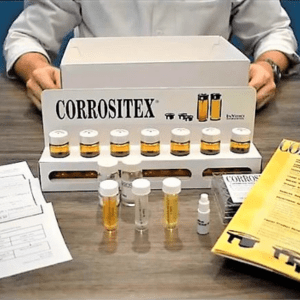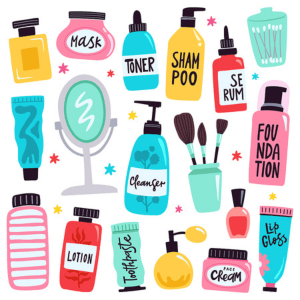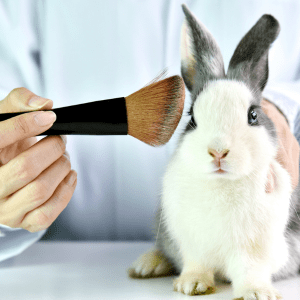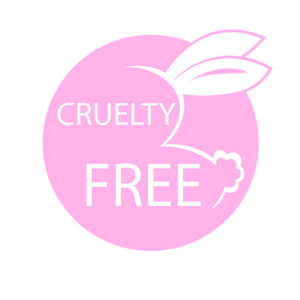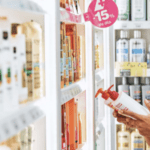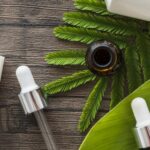Canada Proposes End to Animal Testing of Consumer Products: Corrositex® Alternative
By: Teah Jazey, Regulatory Affairs & Product Safety Associate
Canada has been lagging behind over 40 other countries in banning consumer product testing on animals, including cosmetic animal testing. Now, in 2023, Canada is trying to catch up.
In this article, we’ll review Canada’s animal testing facts as well as the most recent proposal to alter current regulatory requirements. More importantly, we’ll talk about the trusted alternative to perform cruelty-free skin corrosion testing that’s been available for the past 8 years – Corrositex® (OECD 435).
Read to the end to see Frequently Asked Questions about animal testing and Corrositex® (OECD 435).
Campaign Update: Proposal to Alter Food and Drugs Act
Earlier this year Health Canada announced its plan to stop animal testing on consumer products, including chemical cleaners. It would also prohibit cosmetic animal testing on products such as:
- Moisturizers
- Perfume
- Hair products
- Shaving products
- Nail polish
The ban is also set to push changes in Canada’s Food and Drugs act, through the S-214 Act, which would make the change Federal and applicable across Canada. As mentioned above there are alternative test methods currently available that make it possible to achieve the same result in product compliance and safety without compromising animal welfare. The in vitro method, Corrositex® OECD 435, is an alternative to animals tests for skin corrosion. It is performed to determine the corrosivity of a product or substance to provide accurate hazard classifications that are accepted by many regulatory bodies in North America.
Please note the limitation of this test method is it is not able to test for skin irritation – Corrositex(R) OECD 435 is a test for skin corrosion only. This test method is currently accepted by consumer (Consumer Chemicals and Containers Regulations, Consumer Product Safety Commission, Hazardous Products Regulations and OSHA HCS 2012) and transportation (DOT and TDG) regulatory bodies in both Canada and the United States.
Canada’s wider stance on animal testing
For many years, we have seen this change to ban animal testing for cosmetics and other consumer products worldwide. Countries such as India, Israel, Mexico and much of the European Union has already banned the use of animals in the testing of products.
Innova Market Insights show that between 2017 and 2021 the growth of “cruelty free” brands introduced into the market was more than 31%.
- Europe shows a 44% increase of these types of products coming to market
- North America shows a 27% increase
Canada has recognized the need to move forward in the cosmetics and consumer products industry to promote the reduction in animal experiments and increase the use of non-animal test methods. For example, Bill S-5 aims to reduce the reliance on animal testing on products by amending the preamble in the Canadian Environmental Protection Act, 1999 (CEPA).
In January of 2023 the government also posted a Notice of Intent to update the New Substances Notification Regulations (Chemicals and Polymers), the NSNR, to promote the reduction on reliance for animal testing to produce the required test data. Currently under the NSNR certain test data for substance importation or manufacturing that would suggest the requirement for the use of animals to produce results. The aim of this proposed amendment is to promote alternatives to reduce animal testing; this requires acceptance of in vitro data.
Additionally, the S-214 Act, sometimes referred to as the Cruelty-Free Cosmetics Act, aims to alter the Food and Drugs Act in a way to prohibit the use of animal tests in cosmetics and encourage the development and use of cruelty-free methods to achieve the same end result.
Though cruelty-free testing is not yet a Canadian law, it is highly encouraged by the government over animal research & animal experimentation.
Accepting alternatives to animal testing
Non animal alternatives do exist for some required cosmetic testing. Corrositex® (OECD 435) is the accepted alternative to test and classify cosmetic products for skin corrosion. The test works by the addition of a test material applied to a macromolecular bio-barrier, similar to the skin, that by a colour change determines the appropriate corrosive classification.
- For information on the benefits of the Corrositex® OECD 435 watch Dell Tech’s video: https://www.youtube.com/watch?v=xHQ1BQUA_S4
- For more information on the Corrositex® OECD 435 kits check out Dell Tech’s blog: https://delltech.com/services/lab-services/corrositex/
Dell Tech is the exclusive distributor of Corrositex® in Canada and can also perform this test in our own ISO 17025 Accredited Laboratory. Contact our team to order your kit or receive a quote on testing today.
Benefits:
- Low Cost – the cost of Dell Tech’s Corrositex kits are about 5 times cheaper than current animal testing.
- Fast Turnaround – Corrositex data can be achieved very quickly. In most cases Corrositex kit produce same day results!
- Accuracy – OECD 435 is a validated method accepted by TDG, DOT, OSHA and Health Canada
- 100% Cruelty Free – in vitro test method that is performed in a lab setting. No use of animals required!
Frequently Asked Questions
What is animal testing?
The term “animal testing” refers to procedures performed on living animals for the purpose of testing the human health and/or environmental safety of consumer and industry products such as cosmetics or household cleaners.
What is tested on animals?
Animal testing for cosmetics is very common as well as for cleaning products. Animal tested cosmetics employ animal experimentation to produce data to reinforce product classification and consumer safety.
How can my company access animal testing alternatives for our brand(s)?
Dell Tech offers both in-house testing as well as kits for skin corrosion. This test will provide you with data to determine the appropriate skin corrosion classification, 1A, 1B or 1C.
How do I register my cruelty-free cosmetics for sale in Canada?
Cruelty-free certification is not necessary to sell cosmetic products in Canada. All cosmetic products do require notification with Health Canada through what is called a Cosmetic Notification Form. Dell Tech’s regulatory compliance team has over 40 years experience assessing formulas, reviewing labels and completing CNFs for hundreds of companies selling cosmetics in Canada.
There are several 3rd party certification programs that your company can enroll in to stamp your products with cruelty-free approval. Many cruelty-free brands opt for leaping bunny certification as it is globally recognized.
The End of Animal Tests for Consumer Products in Canada (May Be) Near
In early 2023, Canada announced its plan to ban animal testing for cosmetics and other consumer products. Through the S-214 act, this will be a Federal ban across all of Canada.
Luckily, alternatives to animal methods already exist for some testing, including skin corrosion. Corrositex® (OECD 435) has been an accepted alternative for over 8 years.
Dell Tech can perform this test for your company in our on-site laboratory – or we’ll provide you with the kit so you can test cosmetics and other consumer products independently.
For More Information, Contact Client Services:
Kim Samela


